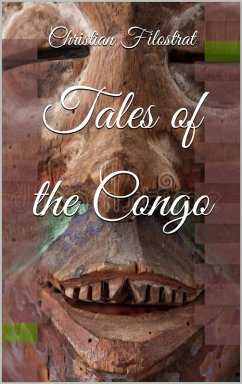Tales of the Congo: One hundred and fifty years of what happened in the Congo, from events in the lives of the Twas (Pygmies) to the ousting of Mobutu Sese Seko. Like most visitors, you feel the symptoms of your first day in Africa. As soon as you get acclimatized to the Congo, that will dissipate. Your minds will adjust, not because the Congo has changed, but because you have decided to transform it. And you will thank God for this opportunity, and you will have even more sympathy for the Congo; then you will become champions of the Congolese people.
Dieser Download kann aus rechtlichen Gründen nur mit Rechnungsadresse in A, B, CY, CZ, D, DK, EW, E, FIN, F, GR, H, IRL, I, LT, L, LR, M, NL, PL, P, R, S, SLO, SK ausgeliefert werden.


